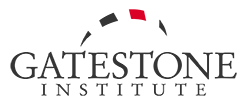Formerly "Hudson Institute, New York"
President Obama Turns a Corner on Iran
by Alan M. Dershowitz
March 2, 2012 at 5:10 pm
http://www.stonegateinstitute.org/2908/president-obama-turns-a-corner-on-iran
![]()
![]() Be the first of your friends to like this.
Be the first of your friends to like this.
President Obama has turned an important corner in his efforts to persuade Iran not to try to develop nuclear weapons, and in his efforts to persuade Israel to allow his combination of punishing sanctions and tough talk to work. In his recent interview with Jeffrey Goldberg in Atlantic Magazine, President Obama sent a clear message to the Iranians that he is not bluffing, that he means it when he says that American policy is not to accept a nuclear Iran, and that no option, including a military one, is off the table if sanctions and threats appear not to be working.
I was not surprised by President Obama's strong words, because he said similar things to me in private conversation. But now he has said them in public, and with words that are unequivocal and put his credibility, and the credibility of our country, on the line. (I will not repeat the President's words here because they can be found in the Goldberg article that appears http://www.theatlantic.com/international/archive/2012/03/obama-to-iran-and-israel-as-president-of-the-united-states-i-dont-bluff/253875/).
For those who have claimed that Obama is anti-Israel and/or weak on Iran, these forceful statements should make them reconsider. I, for one, am satisfied with the President's words. Now I want to hear them repeated by Secretary of Defense, Leon Panetta, by Joint Chief of Staff Martin Dempsey and by others in the Obama Administration. For me the problem has never been President Obama. His voice has generally been strong and clear in support of Israel's security and his determination to prevent Iran from securing nuclear weapons. The same cannot be said for other members of his administration. The resulting mixed message has been viewed as a green light, or at the very least a yellow light, by the Iranian mullahs. Now they have been given a clear red light, and if they try to speed past that red light, they should understand the grave consequences.
Having said all this, there still is some distance between the United States and Israel when it comes to timing and red lines. Israel has a closer red line, because it may soon lack the military capacity to destroy Iran's nuclear weapons program, if that program succeeds in going underground to bunkers that are impenetrable to Israeli bombs. The United States has more time, and a further red line, because it has far greater capacity to destroy even a deeply buried Iranian nuclear weapons program. This difference requires the Israelis to place great trust in President Obama's promises.
As a nation built on the ashes of the Holocaust, Israel must always heed the lesson Elie Wiesel learned from his horrendous experiences during the Second World War: "Always believe the threats of your enemies, more than the promises of your friends."
Israel may feel the need to take its own military action, even if it believes—as it should—that Obama is now expressing his true views and policies regarding a nuclear Iran. Things change. People, even presidents, change their minds. Public attitudes change. Promises are fragile reeds on which to rest life and death decisions about one's own population. It is fair to ask the question whether if the shoe were on the other foot, the United States would be willing to put the safety of its citizens in the hands of a close and trusted ally rather than in its own hands. Because the United States has the strongest military in the history of the world, that particular shoe is never on the other foot, yet it is an interesting thought experiment.
I hope, with all my heart, that military action will not be necessary against Iran. As George Washington cautioned in his second inaugural address, "To be prepared for war is one of the most effectual means of preserving peace." A credible threat, backed by extensive military preparation, may be the most effectual means of eliminating the need for a military option.
This is the first time I've been at all optimistic about the possibility that Iran may be frightened into giving up its nuclear weapons program. I never believed that sanctions, regardless of how punishing, would alone work on the Iranian mullahs, as they have apparently worked on North Korea's new leader. But a combination of punishing sanctions and credible threats might just do the job. If not, the military option may become necessary, but it now looks like that option will be held as a sword of Damocles over the heads of the mullahs, rather than being dropped on their heads now. For the sword to work, it must not only hang above their heads, it must be seen by them, and they must believe that we are prepared to have it drop.
Related Topics: Alan M. Dershowitz
To subscribe to the this mailing list, go to http://www.stonegateinstitute.org/list_subscribe.php







































No comments:
Post a Comment